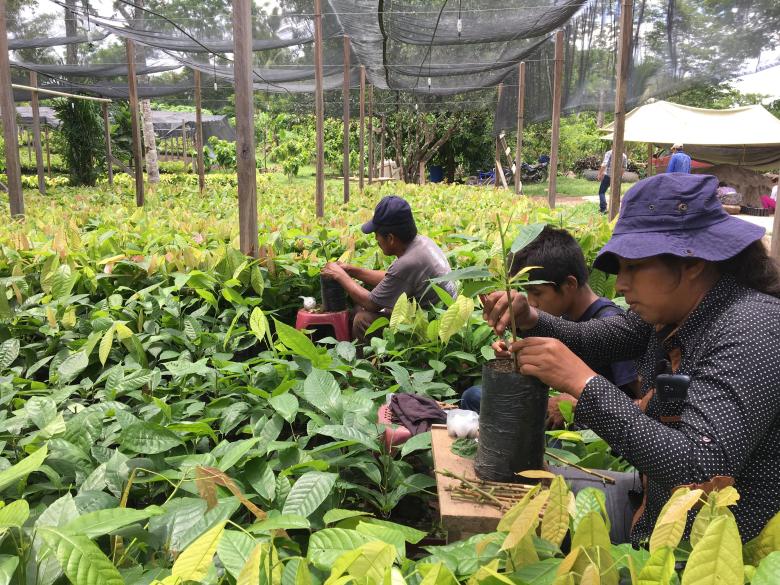
Agroforestry systems for sustainable cocoa farming in the Lachuá Ecoregion
An estimated 30-40 per cent of annual household income in Guatemala is derived from forest products. Cocoa production was recognised as an economically viable alternative for job creation and increased local income, underscoring its economic, social, environmental and cultural value. As a native species typical of the region and high in yields and quality, cocoa had high potential to advance the economic and social development of producers and communities, particularly women and youth of the Q’eqchi’ ethnic group. The intervention employed a Nature-based Solution in the Lachuá Ecoregion that supported 170 cocoa producers in an area of 303 ha and aimed to intensify cocoa production based on sustainable agroforestry management approaches that would not only contribute to local livelihoods, but also improve conservation and biodiversity outcomes through forest landscape restoration.

